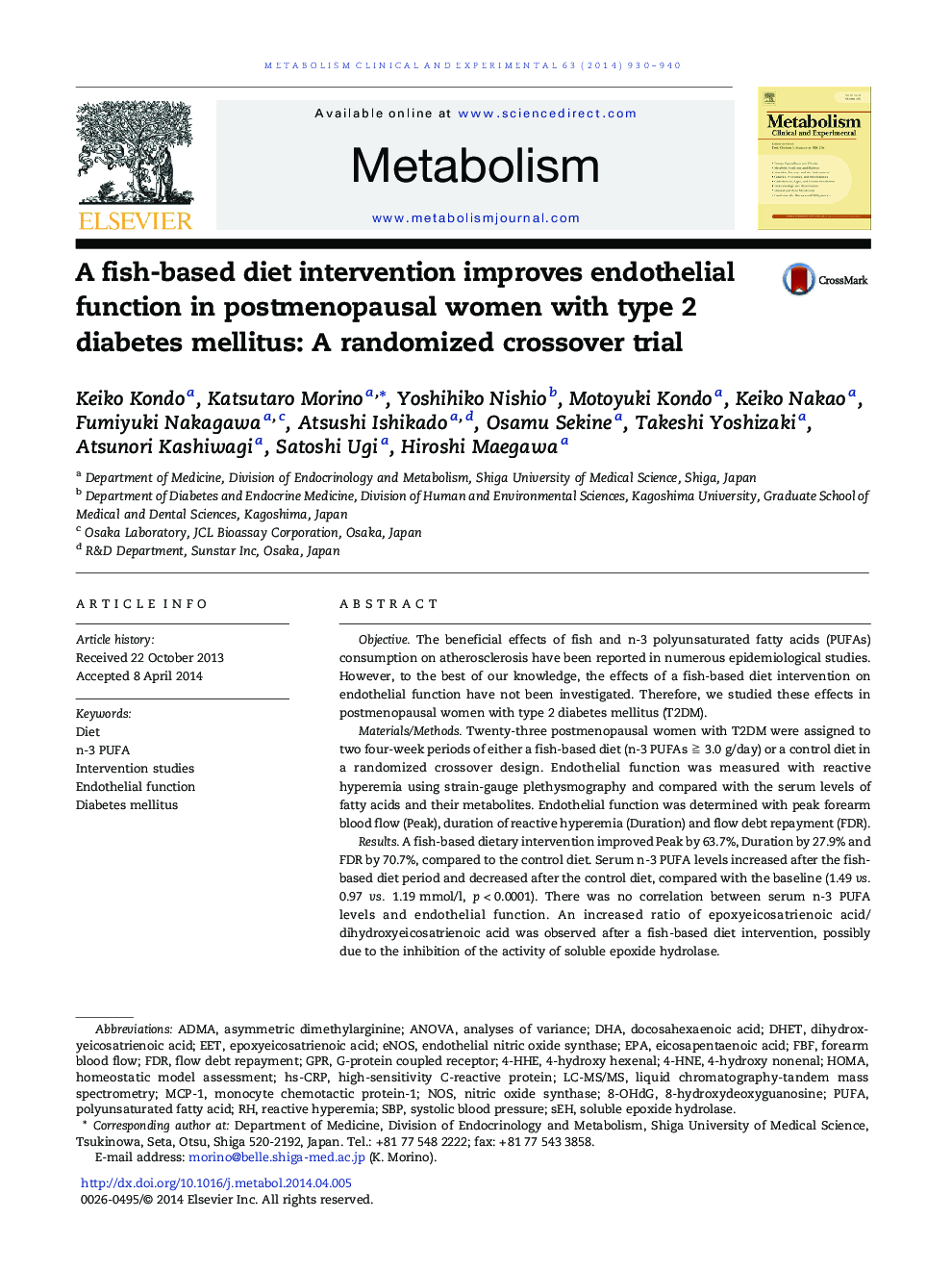| Article ID | Journal | Published Year | Pages | File Type |
|---|---|---|---|---|
| 2805507 | Metabolism | 2014 | 11 Pages |
ObjectiveThe beneficial effects of fish and n-3 polyunsaturated fatty acids (PUFAs) consumption on atherosclerosis have been reported in numerous epidemiological studies. However, to the best of our knowledge, the effects of a fish-based diet intervention on endothelial function have not been investigated. Therefore, we studied these effects in postmenopausal women with type 2 diabetes mellitus (T2DM).Materials/MethodsTwenty-three postmenopausal women with T2DM were assigned to two four-week periods of either a fish-based diet (n-3 PUFAs ≧ 3.0 g/day) or a control diet in a randomized crossover design. Endothelial function was measured with reactive hyperemia using strain-gauge plethysmography and compared with the serum levels of fatty acids and their metabolites. Endothelial function was determined with peak forearm blood flow (Peak), duration of reactive hyperemia (Duration) and flow debt repayment (FDR).ResultsA fish-based dietary intervention improved Peak by 63.7%, Duration by 27.9% and FDR by 70.7%, compared to the control diet. Serum n-3 PUFA levels increased after the fish-based diet period and decreased after the control diet, compared with the baseline (1.49 vs. 0.97 vs. 1.19 mmol/l, p < 0.0001). There was no correlation between serum n-3 PUFA levels and endothelial function. An increased ratio of epoxyeicosatrienoic acid/dihydroxyeicosatrienoic acid was observed after a fish-based diet intervention, possibly due to the inhibition of the activity of soluble epoxide hydrolase.ConclusionsA fish-based dietary intervention improves endothelial function in postmenopausal women with T2DM. Dissociation between the serum n-3 PUFA concentration and endothelial function suggests that the other factors may contribute to this phenomenon.
